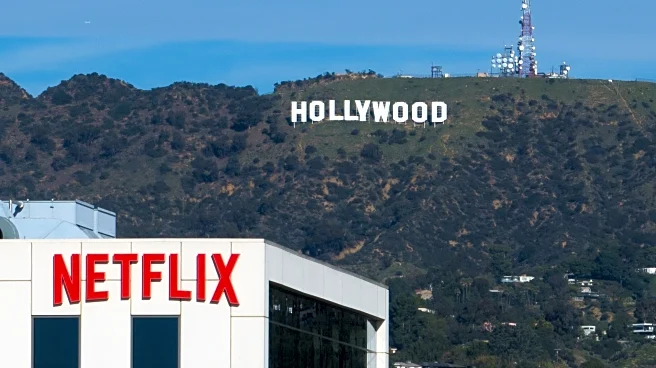What is the story about?
What's Happening?
The art world is facing significant challenges in integrating e-commerce into its traditional business model. Despite efforts to launch digital platforms and auction sites, many initiatives have stalled or failed. The COVID-19 pandemic forced a temporary shift to online platforms, but the anticipated growth in digital art sales has not materialized. Major players like David Zwirner and Christie's have scaled back their digital projects, with Christie's shutting down its digital-art department. The art market's resistance to e-commerce is partly due to the unique nature of art transactions, which rely heavily on personal relationships and the control of art ownership.
Why It's Important?
The struggle to integrate e-commerce in the art world highlights the challenges of digital transformation in industries reliant on personal interactions and exclusivity. The failure to capitalize on digital sales could limit the art market's growth and accessibility, potentially excluding new collectors. This situation underscores the broader issue of how traditional industries adapt to technological advancements. The art market's hesitance to embrace e-commerce may also reflect a reluctance to disrupt established power dynamics and economic models within the industry.
What's Next?
As the art world continues to grapple with digital integration, stakeholders may need to explore hybrid models that combine online and offline experiences. The focus could shift towards creating engaging digital content and events to attract new audiences. Additionally, there may be a push for more inclusive and accessible digital platforms to expand the market. The ongoing evolution of digital art, including NFTs, could also influence future strategies, although the current decline in NFT popularity suggests a cautious approach.
Beyond the Headlines
The art world's e-commerce challenges raise questions about the role of technology in preserving cultural heritage and artistic integrity. The potential for digital platforms to democratize art access is significant, but it also risks commodifying art and undermining its cultural value. The ethical implications of digital art sales, including issues of authenticity and ownership, will likely continue to be debated as the industry navigates these changes.
















